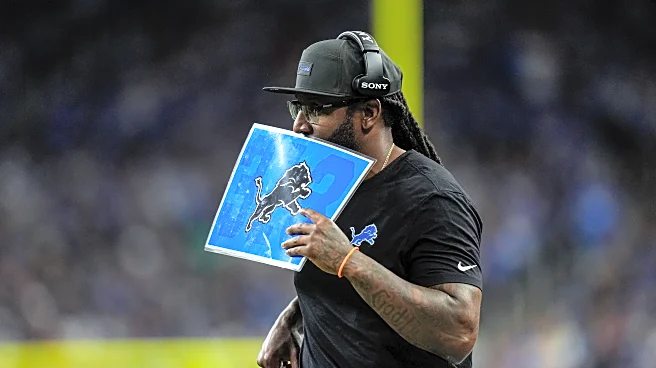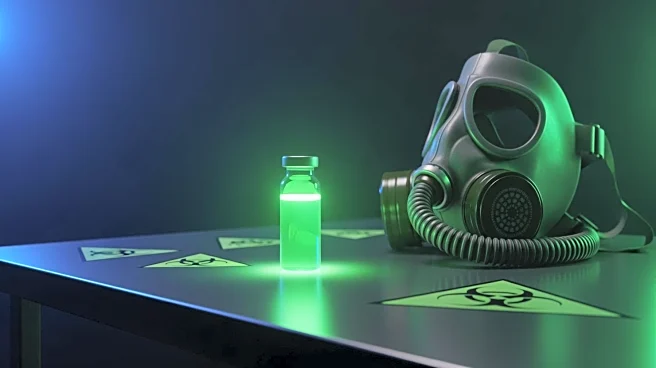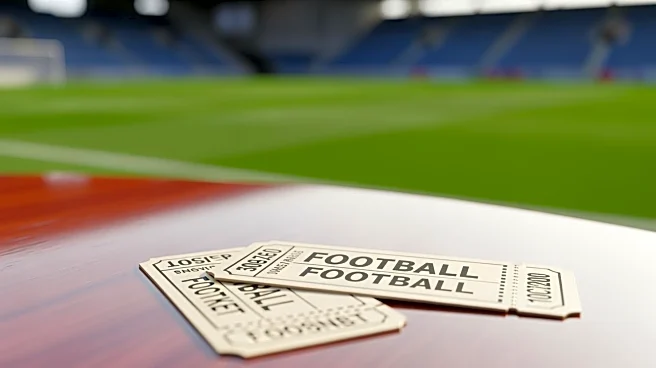It was an informational and entertaining Thursday from Allen Park, as all three Detroit Lions coordinators held their weekly press conferences. Here are my biggest takeaways from the three sessions.
Offensive coordinator John Morton
Jameson Williams has already rebounded
Earlier this week, Lions receiver coach Scottie Montgomery praised Williams’ ability to put Sunday’s tough game behind him. The first-year wide receiver coach noted Williams’ year-to-year growth in his overall attitude after a bad outing. Morton took that one step further and said that despite some of
the errors against the Browns, Williams rebounded well during the game.
“Look at what he did after in the game. He continued to block his butt off during the game. We hit him on that one third-down play,” Morton said. “So, he bounced back the next play, that’s what I think. And then the way he practices, listen, there’s no problem with Jamo.”
Amon-Ra St. Brown, the best Morton’s ever seen
We’ve run out of ways to talk about St. Brown, who continues to chip away at Lions records one-by-one, despite this being only his fifth NFL season. Morton was asked if the two-time All Pro receiver is on track to be a Hall of Famer, and it’s clear his answer was yes.
“It isn’t even close,” Morton said. “I told St. Brown the other day, ‘You’re the best I’ve ever been around. Run and pass. The way you prepare, the professionalism,’ what he does in the offseason […] I told him, I said, ‘I don’t really care what the coverage is, you’re going to get open.’”
Morton was quickly reminded that he once worked with Jerry Rice who was toward the end of his playing career with the Raiders. He made sure to clarify.
“I’m talking about running, pass, everything,” Morton said. “I mean Jerry would block every once in a while, but I don’t think Bill Walsh wanted him to block too much. He had other guys for that.”
Defensive coordinator Kelvin Sheppard
More on defense’s plate than ever
During Sheppard’s opening statement about last week’s Browns games, he said something that caught my attention.
“The volume that these (coaches) are able to teach weekly is really amazing. This is the most defense we’ve played week to week since I’ve been here, so I want to credit them,” Sheppard said.
From the naked eye, it certainly seems like Detroit is changing their defense more week to week. Whether it’s using more zone one week, utilizing a QB spy, or finding subpackages for players like Trevor Nowaske and Tyler Lacy. So I followed up with Sheppard about this newfound flexibility.
“I believe in putting players in position to make plays and not just being stuck in your ways,” Sheppards said. “(Not) ‘These are my three, four defenses, we’re going to do this,’ and never adjusting. Because that’s when you start to get attacked and schemed up and the players feel hopeless out there. And that’s the worst thing, I know for me as a coach, for my players to ever feel hopeless. I want my players to know we always have answers for you.”
By being more flexible and showing the defensive players he can have answers for just about anything the offense throws at him, it’s helped to build the confidence the defense is playing with at the moment.
DJ Reader doesn’t get enough attention
Sheppard noted that Reader got a game ball for his efforts against the Browns. The Lions have been particularly stout in short-yardage situations this year. Per FTN Fantasy, teams are finding success on just 27% of power situations against the Lions defense, ranking first in the league. In fact, 30 of 32 teams are ceding a success rate of 50% or more. Sheppard believes Reader deserve much of that credit.
“He’s not popping off the stat sheet and he doesn’t have 13 tackles, three sacks, but it’s all of the dirty work that people don’t see,” Sheppard said. “Those guys, statistics wise, they show up when Jack Campbell gets 10 tackles every week because they can’t come off of double teams. They show up when Tyleik (Williams) goes out on two huge critical plays two weeks ago and gets two PBUs. Man, them guys, I can’t rave about them enough.”
He also praised Reader as a leader, even if he’s not a captain.
“He is viewed as a leader on our defense. He doesn’t talk much, so when he does, guys listen—even me,” Sheppard said.
Alim McNeill is already back
While it still feels unrealistic for McNeill to play this week against the Bengals after just one week of practice following his torn ACL in December, Sheppard insisted after one practice, McNeill is already looking like the dominant player he was.
“It’s amazing when you watch those practice clips. It’s like he’s been at training camp, I mean, he does not look like a player that hasn’t practiced,” Sheppard said. “And that’s credit to him. I know all those bone density and all these guru terms they throw out, but all I know is I see a very, very high caliber defensive tackle when I turned on the tape yesterday. So, I’m very excited to have him back out there.”
Special teams coordinator Dave Fipp
Note: Fipp spent a big portion of his media session talking about the kicking ball controversy started by Eagles defensive coordinator Vic Fangio. We wrote about that separately here.
The future of kickoff types
Fipp had some interesting comments about kickoff types. Through four weeks, we’ve seen teams try just about everything: kick deep, kick short, line drive kicks, kicks away from a lone returner, etc. However, it’s become a cat-and-mouse game, as the returning team has found ways to make specialized kicks less effective. Fipp pointed to the Ravens game, noting that Detroit pushed their returners further upfield to catch short kicks in the air and give them a return advantage.
So where will things eventually land with teams? Fipp pointed out that if you can get the ball on the ground in the landing zone, that’s the best option, but not every kicker can drive it low with accuracy. Instead, we may see kickers develop a ton of different options and utilize whichever one fits the current situation.
“It’s putting a lot in the kicker’s hands. I think the more that coaches learn about the play, the more the kickers are going to learn about the play and the more the ball’s going to—you’re going to want the ball to move around based off of not only the returner but also the look that you have,” Fipp said.
















